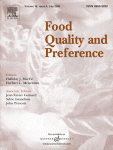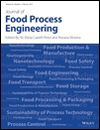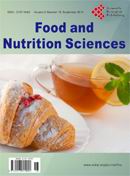
It’s been a rough year for Brian Wansink.
Last year, the prominent food researcher posted a blog praising a student for her productivity in his lab. But when Wansink described his methods, readers became concerned that the lab was using improper research techniques to generate more publications. Earlier this year, researchers posted an analysis of four papers by Wansink about pizza consumption to PeerJ, saying they discovered more than 150 inconsistencies in the data. Now, one of those four papers has been retracted.
On Friday, BMC Nutrition posted a brief notice about the 2015 paper, which examined whether people who pay different amounts for all-you-can-eat Italian buffets feel more or less guilty about how much they ate. The notice says the retraction stems from concerns about the data analysis, and the authors do not agree with the journal’s decision.
The new retraction is the second for Wansink, director of the Food and Brand Lab at Cornell.
Here’s the complete retraction notice:
Continue reading Another retraction hits high-profile food researcher under fire
 Journals have posted two corrections alongside papers by
Journals have posted two corrections alongside papers by  A Cornell food researcher who has pledged to re-analyze his papers following heavy criticism of his work has issued a major correction to a 2005 paper.
A Cornell food researcher who has pledged to re-analyze his papers following heavy criticism of his work has issued a major correction to a 2005 paper. A journal has flagged a paper by a researcher who has questioned the safety of genetically modified organisms, after receiving concerns that there were issues with some images.
A journal has flagged a paper by a researcher who has questioned the safety of genetically modified organisms, after receiving concerns that there were issues with some images.
 A food science journal has retracted a paper over “a breach of reviewer confidentiality,” after editors learned it contained text from an unpublished manuscript — which one of the authors appears to have reviewed for another journal.
A food science journal has retracted a paper over “a breach of reviewer confidentiality,” after editors learned it contained text from an unpublished manuscript — which one of the authors appears to have reviewed for another journal.
 Earlier this year, a nutrition journal
Earlier this year, a nutrition journal 
 As
As